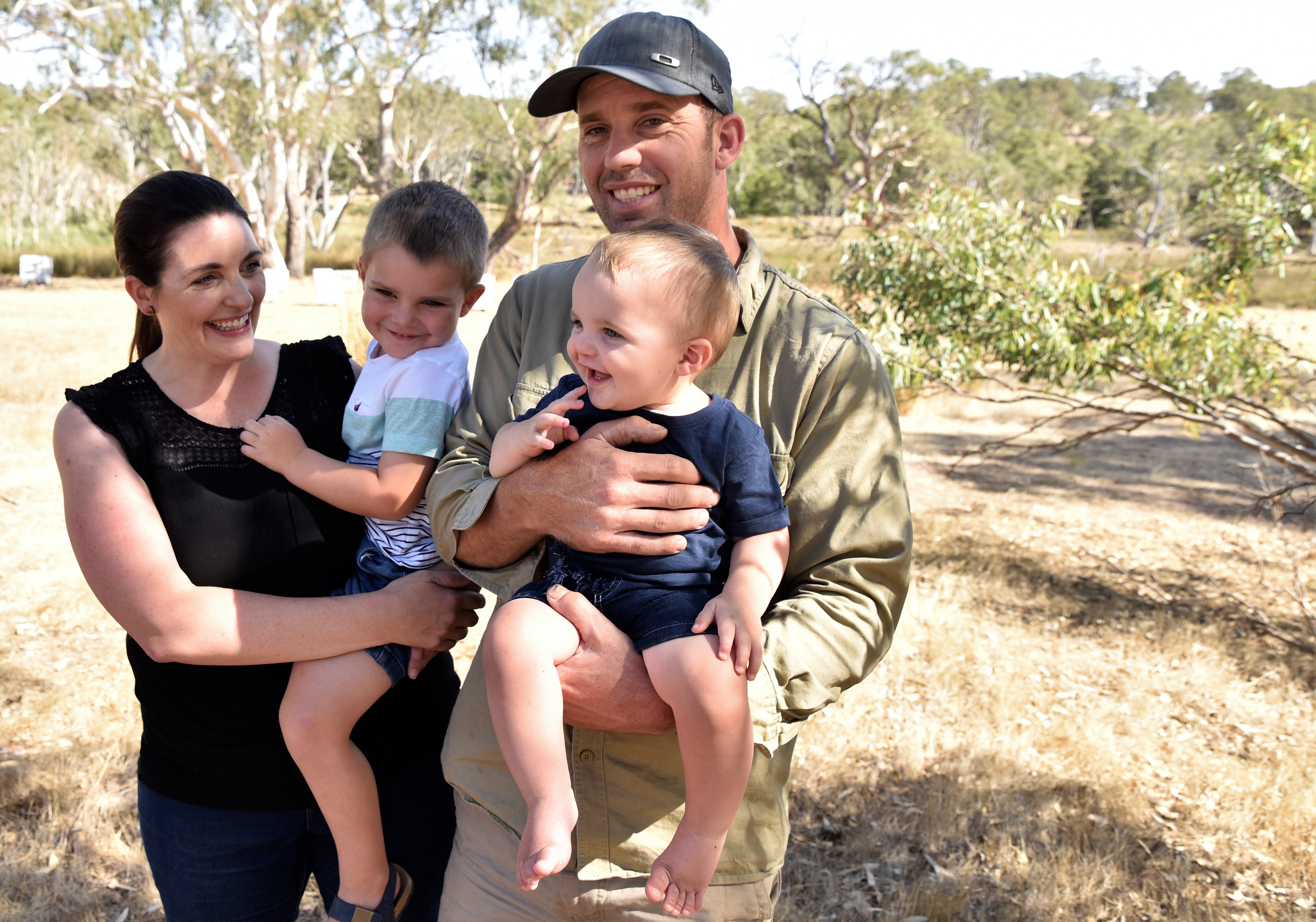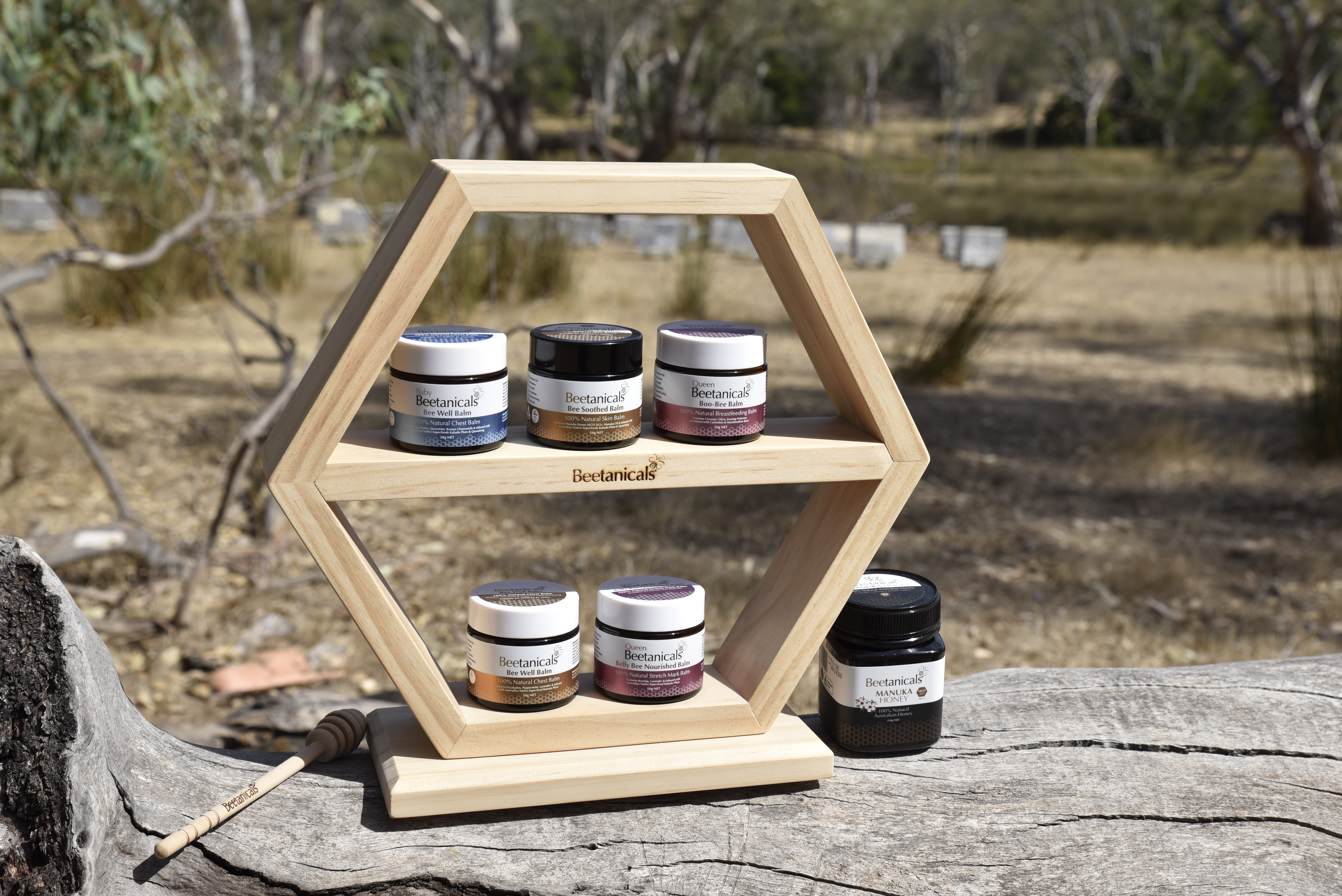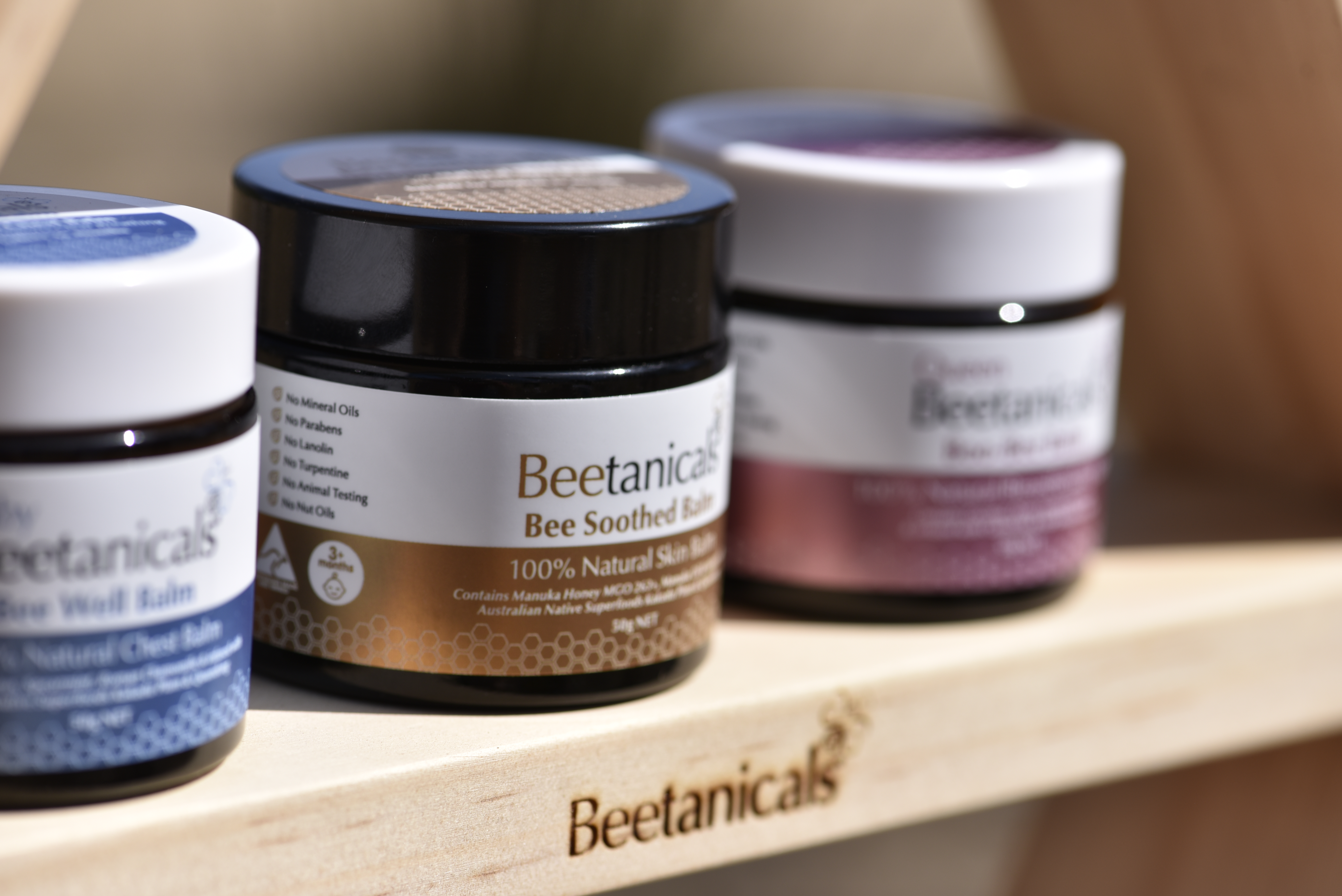Most days you see a story that is too good to be true.
The bank CEO who only goes to work for the love of his customers (but is pocketing my lifetime’s earnings in a year).
The reality TV star with yet another distressing backstory who turns out to have an ugly soul.
This is not one of those stories.
Every so often, someone comes along and despite our learned cynicism, the questions over what they are really seeking, the queries about the product, they emerge squeaky clean and cause us to start believing in people all over again.
Tanya Stanley is standing in a dry paddock, sons Cooper and Toby washed and scrubbed for the occasion, and boxes of humming bees at a safe distance and she is just bursting to talk about the benefits of the Beetanicals skin balm range. She is 100% focused not on sales, or on appearance, but on the excitement, she gets from the legions of customers who are contacting her to thank her for her product.
“It’s a very high emotion business,” Tanya said.

“It’s so important to me, to know that the skin balms I produce are really helping people – mums who are feeding, babies with skin conditions, and also people going through chemotherapy have started to use it.
“I just want to educate people and help them with their skin and ease their relief and discomfort, it feels really, really good to help out.”
It’s a skincare range she has created with thousands of hours of research, in world-class packaging, with new success stories from users coming in by the day, all conjured from the kitchen of her home in Douglas, a speck on the map 70 kilometres southwest of Horsham.
She could be boasting about the rapid uptick in sales, the achievements of creating a vibrant new business in rural Victoria while on maternity leave from her career in financial planning, or the juggle of raising two kids alongside her husband, third-generation beekeeper Warren.
But instead, Tanya’s answers are a stream of credit for others. She wants to credit Warren, whose knowledge of bees and beekeeping set her on the path to natural skincare queen; her employers, who have strongly supported her to create the enterprise with extended maternity leave and her kids – in particular Cooper, whose had a skin condition from birth inspired her to try to find a natural, effective skincare balm.

Her main anxiety at the end of the discussion is she has also neglected to mention her parents, who have spent countless hours at markets and with the children while she pursued her dreams.
The story, though, is really about Tanya. She grew up in Horsham before meeting Warren and starting a new life in Douglas, while continuing to travel to the regional city to continue her job.
When Cooper was born, she was already well versed in the soothing properties of beeswax and honey from discussions with Warren, and her immediate motivation was to find a natural balm for his skin.
“I am a big researcher, I have spent thousands of hours researching what could work as a balm for Cooper’s skin and working with experts along the way to bring our product range to life,” Tanya says.
“Initially I was making it for my son and had other people interested in it. I was big on getting it right, I wanted to connect with the right experts before sharing it with family and friends and it has just evolved over time.”
The basic balms she brewed in her kitchen had great results on Cooper, and requests for the balm continued to grow as word spread. Ever cautious, with a keen focus on safety and effectiveness, she enlisted cosmetic chemists to help her formulate a range of balms and after four years of work, was finally ready to launch the Beetanicals range in September 2018.
An online business course run by the online Women’s Business School played a key role in preparing the business for launch.
“Completing the business skills course online from here in Douglas was incredible; there is a whole network out there of mums and women in business than opened up contacts to me so I could establish the business from Douglas,” Tanya says.

“We have been overwhelmed by the response – the support for the product and the stories from people, knowing that they are putting something natural and effective on their children’s skin. I’m overwhelmed by how it is making people feel.”
Chemists, baby boutiques and retail outlets have been in touch, wanting to stock the range and Tanya has also been approached by a number of people interested in export, but the potential financial windfall from sending Beetanicals overseas holds little allure.
“There are so many people in Australia that need help with their skin, I haven’t made any plans to export it at the moment,” she says.
Living in Douglas, in the West Wimmera Shire, has ended up being an important part of the success story of the brand.
“Because we are out here in a beautiful environment, with Warren being a third-generation beekeeper, using natural ingredients to help people with stories like our own, I think people have really responded well to our products,” Tanya says.
“Our family journey has been a really important part of the business – and I wouldn’t change it for anything.”
Visit the Beetanicals website for more information.